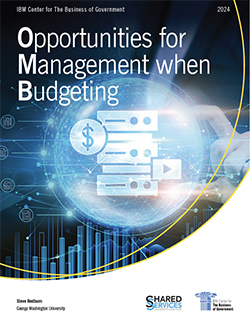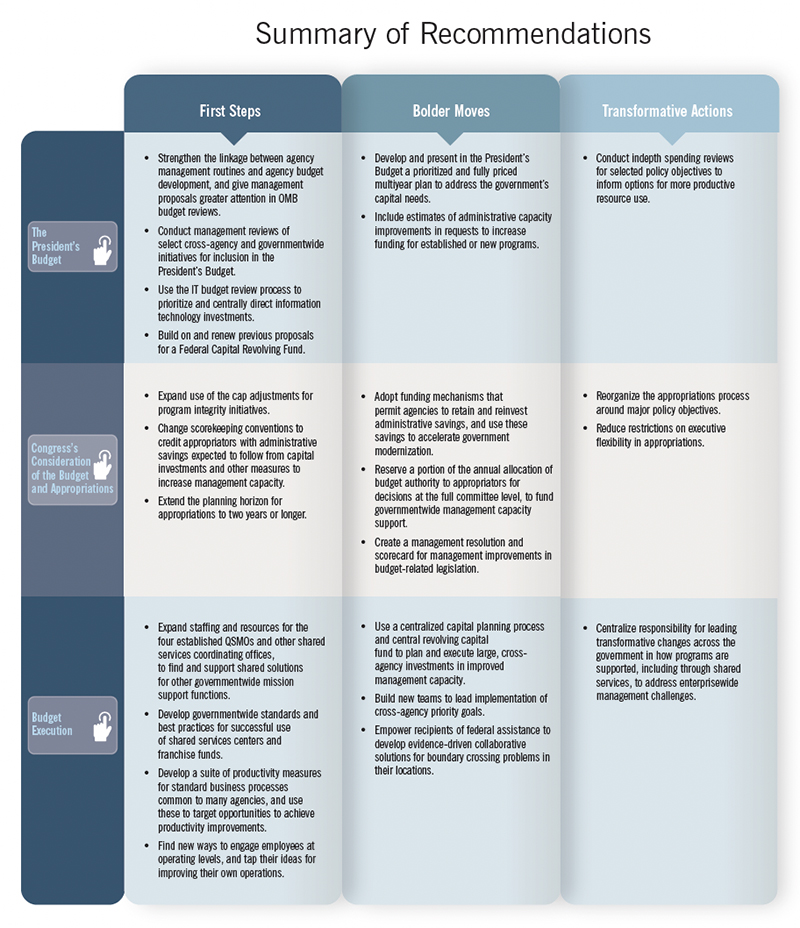
How Can Budget Actions Improve the Management of Government Programs that Serve the Public?

Many laws and policies intended to improve government performance have been enacted and implemented over the years. Those actions primarily impact overall measurement of results, like the Government Performance and Results Act; or management processes, like information technology, or financial management. Today, dozens of such laws and policies drive agency management actions.
However, few efforts have focused on how budget and appropriations processes can incentivize investments in and improved outcomes from management initiatives, such as technology modernization or shared services. And nearly every year, the effects of delayed budgets due to continuing resolutions and shutdown possibilities add operational costs for agencies and dampen efforts to introduce new management improvements, as demonstrated in this IBM Center report over a decade ago and experienced by agencies every year since 1997.
To address options for integrating budget reforms with management improvements, the IBM Center and the Shared Services Leadership Coalition have just issued a new report, Opportunities for Management when Budgeting, by Steve Redburn with George Washington University and former executive with the Office of Management and Budget.
This draws on insights from an expert roundtable of current and former OMB and congressional staff, agency budget experts, and academic and nonprofit partners. The report outlines a series of challenges and opportunities for changes to the government’s budget process that can improve results in numerous management areas, including technology, analytics, and shared services. The report offers specific practical recommendations to achieve such objectives, including near-, mid-, and longer-term steps that the government can take in budget development, congressional review, and budget execution.
The chart below summarizes these recommendations, which include greater focus on cross-agency funding, a management resolution process that can work in concert with the annual budget resolution, and retention and scoring of savings that can result over multiple years from up front investments.
Given various proposals for budget reform commissions being considered by Congress, as well as initiatives like the Department of Defense’s Planning, Programming, Budgeting, and Execution (PPBE) Reform Commission, this new report provides decisionmakers with actionable and practical pathways that draw on the experience of experts with a long track record as leaders of government budget and management programs.




